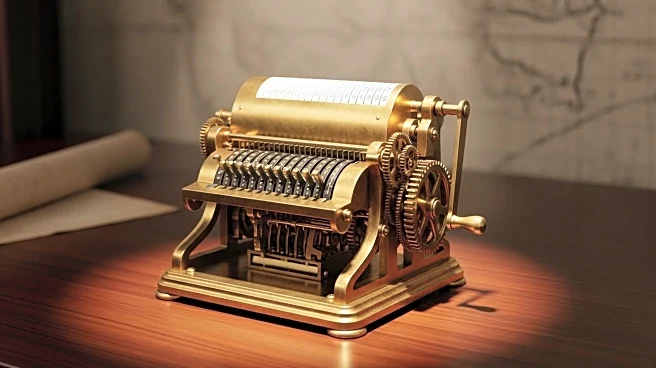What's Happening?
Christie's will auction an example of the first calculating machine, the Pascaline, developed by Blaise Pascal in 1642. The machine, designed to assist Pascal's father with tax calculations, is considered a groundbreaking scientific instrument. The auction will feature the Pascaline as the centerpiece, with an estimated value of €2 million to €3 million. The machine is one of only nine original models, with most held in European museums. The auction will also include works by other historical figures such as Descartes and Newton.
Why It's Important?
The auction of the Pascaline represents a significant moment in the history of scientific instruments and innovation. It highlights the legacy of Blaise Pascal and his contributions to mathematics and technology. The sale may attract interest from collectors and institutions, emphasizing the value of historical artifacts in understanding the development of scientific thought. The auction underscores the importance of preserving and studying historical inventions to inspire future advancements.
What's Next?
The auction of the Pascaline may lead to increased interest in historical scientific instruments and their role in shaping modern technology. Collectors and museums may seek to acquire similar artifacts to enhance their collections and educational offerings. The event could prompt discussions about the preservation and accessibility of historical inventions for research and public engagement.
Beyond the Headlines
The auction of the Pascaline raises questions about the cultural and ethical dimensions of preserving historical artifacts. It challenges traditional notions of ownership and access to scientific heritage. The event may influence long-term shifts in how historical inventions are valued and integrated into contemporary scientific discourse.










